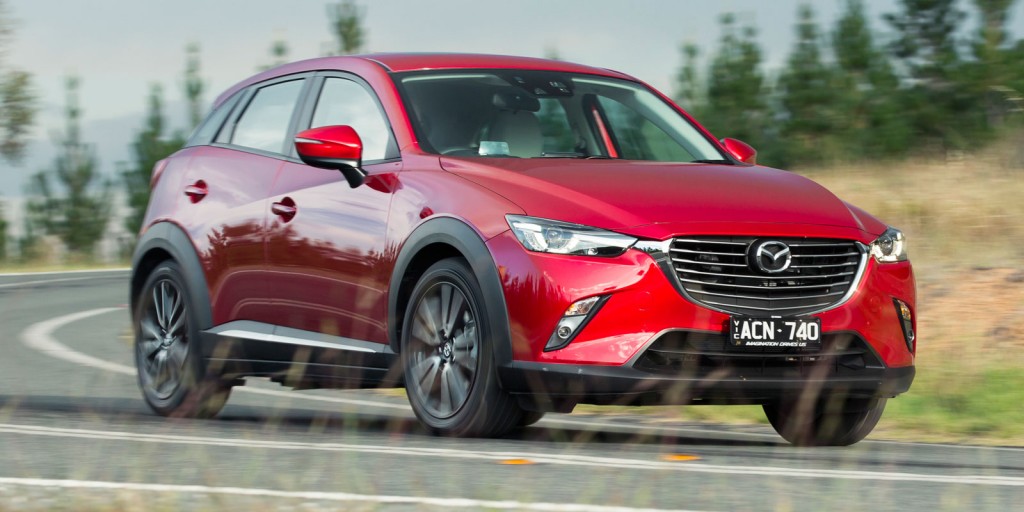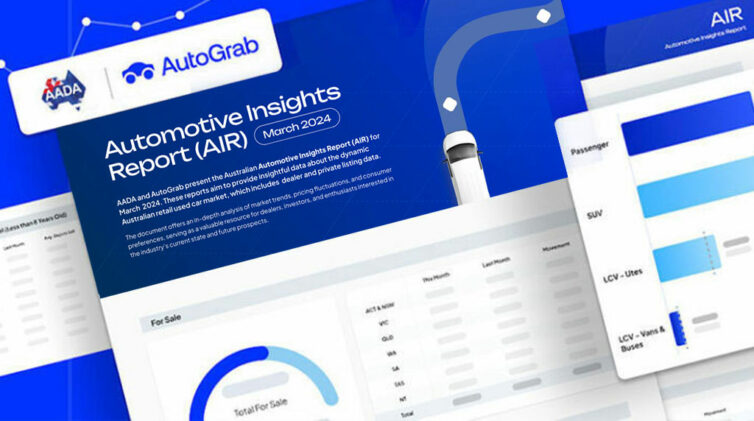The annual study produced by research consultancy AMR in conjunction with international research and advisory firm, the Reputation Institute, ranks Australia’s top 60 companies by revenue – as determined by the IBIS World Top 2000 Company list – and collates insight directly from consumers.
Mazda moved from fifth position on last year’s list to take second position overall – behind only Air New Zealand – as Toyota, which had occupied that second spot, slipped to fourth.
Hyundai was the next best car company in 15th position, well ahead of Ford in 32nd and Holden in 34th.
Part of a global study, the independent research sheds light on how well the leading car companies by sales volume and other measures in Australia are regarded by consumers in terms of reputation, which in turn impacts on key areas such as brand image, loyalty, advocacy and sales.
As well as determining the overall reputation, the index measures how consumers feel about each of the companies according to seven parameters: products and services, innovation, workplace, citizenship, governance, leadership and performance.
The results are particularly relevant with the transition of Toyota, Ford and Holden from local manufacturers to full-line importers, underlining the uphill battle Ford and Holden in particular are facing in the marketplace and the importance of “reputation management” in the wake of the factory closures, job losses, model discontinuations, imported replacements and so on.

Winning combination: Australians surveyed in the corporate reputation index clearly appreciate Mazda’s products such as its top-selling Mazda3, as well as other aspects such as innovation and customer service.
Only five years ago, Holden was in seventh position overall on the reputation index. It was 10th in 2013 but plummeted 25 places, to 35th, a year later after the announcement that it was following Ford’s lead in pulling out of local manufacturing.
The company climbed back to 27th position in 2015, only to fall back to 35th in 2016. It moved forward just one place this year.
In 2012, Ford was well behind Holden in the reputation stakes, sitting at 32nd compared to the lion brand in seventh, but the Blue Oval rose to 20th in 2013 before the announcement in May that year – made after the survey was conducted – that it was closing its production facilities in 2016.
As with Holden, the decision taken was clearly reflected in the survey, with Ford freefalling to 49th – 29 places – in 2014 and then forced to work its way back up the list, to 40th in 2015 and 30th a year later, although this year’s result reflects a step back of two positions.
In analysing the two brands’ dramatic falls in 2014, AMR managing director Oliver Freedman said: “It’s clear that decisions taken by both Ford and Holden about the future of vehicle manufacturing in Australia have had a serious impact on their overall reputations.
“The fact that Holden also ranked poorly in the individual measurements of governance, leadership and performance is further evidence that its overall reputation suffered seriously as a result of its decision to pull out of local manufacturing.”
Perhaps not inflaming the same passion among Australian consumers as Ford and Holden – which used homegrown performance cars and V8 racing to long-lasting effect – Toyota, on the other hand, has not suffered the same hit to its reputation in the study.
It was the top company overall in 2013 (up from fourth the year earlier), slipping back to fourth in 2014 – the survey was conducted just weeks after announcing its manufacturing exit – but then returning to first place in 2015.
Second last year, fourth this year, Toyota has maintained its position as one of the top-five companies in Australia by reputation – just as it has remained the runaway market leader by sales volume – despite the impending factory and Sydney corporate office closures.
It is currently facing another test with the loss of substantial senior management experience at the end of this year, and with high-profile legal action underway against a former employee over millions of dollars it alleges were fraudulently obtained from the company, but these are unlikely to resonate too loudly, or deeply, with average Australian consumers.
Explaining how Toyota returned to number one in the study just a year after announcing it was slashing some 2500 jobs and delivering a fatal blow to the Australian car manufacturing industry, Mr Freedman said it demonstrated “how important a strong reputation is in maintaining consumer trust, even after delivering bad news”.
Toyota maintained its ranking in the top 10 for each of the seven parameters measured in the 2015 study, leading AMR to conclude that the car-maker’s reputation “is built on a broad range of elements rather than just one single capability”.
Mazda’s rise to second place overall in the reputation index this year is unsurprising given its standout performances in other independent studies such as JD Power’s customer service and sales satisfaction surveys.
In the reputation index, the number-two brand in Australia by sales volume moved from 10th overall in 2012 to eighth a year later and then to third in 2014 – a position that placed it at the top of the car industry for the first time.
It slipped to 10th in 2015, returning to fifth last year before this year’s position above all its rivals, to second overall.
Hyundai is the other major car company to watch, making the top-60 list for the first time in 2015. It came in at 28th position, ahead of Ford and looming large in Holden’s rearview mirrors before overtaking the latter in 2016 with a move up to 15th – the position it has held this year.
Nissan was also a relatively strong performer in earlier years, hovering between 15th and 20th from 2012 to 2014, however the company has not made the list since then.
For the years ahead, Australia’s leading car companies – all of whom will be on a relatively level playing field without local manufacturing – might take a lesson from Air New Zealand’s rise to the top of the study this year (from fifth, dethroning JB Hi-Fi) that shows how a “clearly overseas” company can develop a formidable presence.
Qantas, meanwhile, placed fifth and Virgin Australia 16th.
“This is an incredibly strong result for a company clearly based overseas, and shows Air New Zealand’s ability to engage and create an emotional attachment with the Australian public,” Mr Freedman said this week.
He said Air New Zealand’s strong reputation – which has been trending upwards since 2013 – reflected an increased marketing presence, effective advertising (using hobbits and All Blacks, for example) and improved customer service, along with particularly high marks in the products and services category.
“Australians view the company to be authentic and focused on the community, rating highly across the individual measurements of workplace, citizenship, governance and leadership,” he said.
“In addition, our research showed a clear relationship between its reputation and advertising recall.”
This year’s study sample size was 7033, with adults aged 18 and older surveyed online between March 10 and April 3. The results are said to be weighted “to be representative of the Australian population” with “appropriate gender and age groups”.
By Terry Martin















 Read More: Related articles
Read More: Related articles

